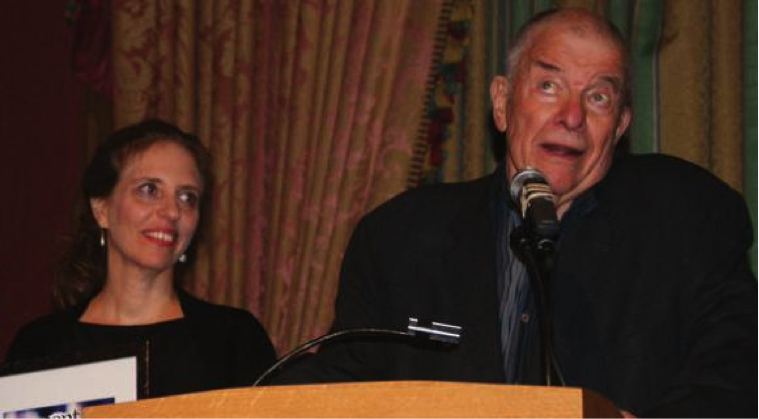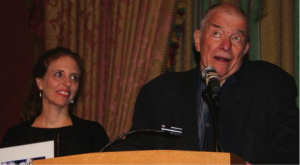Founder Leibel Fein on Moment’s Origins

 The death of Moment founder Leonard “Leibel” Fein last week marked a major loss for the Jewish world. An incisive literary voice and champion of social justice, Fein was “among the foremost of the so-called liberal Zionists … a social progressive, a fierce peacenik, a staunch defender of Israel and a shrewd observer of the American Jewish community,” wrote The New York Times. The Jewish Week recalled “his husky voice and articulate message on improving Jewish life by doing good for one’s fellow man.” And colleague Steven Cohen praised his talent for melding “dispassionate academic rigor and engaged social action” in The Jewish Daily Forward. At this time last year, Moment interviewed Fein on the magazine’s early days, and what he hoped to achieve with Moment. Here is an excerpt.
The death of Moment founder Leonard “Leibel” Fein last week marked a major loss for the Jewish world. An incisive literary voice and champion of social justice, Fein was “among the foremost of the so-called liberal Zionists … a social progressive, a fierce peacenik, a staunch defender of Israel and a shrewd observer of the American Jewish community,” wrote The New York Times. The Jewish Week recalled “his husky voice and articulate message on improving Jewish life by doing good for one’s fellow man.” And colleague Steven Cohen praised his talent for melding “dispassionate academic rigor and engaged social action” in The Jewish Daily Forward. At this time last year, Moment interviewed Fein on the magazine’s early days, and what he hoped to achieve with Moment. Here is an excerpt.
How did Moment come to be born?
I.F. Stone had a magazine that was widely regarded in intellectual circles as a real contribution to the conversation. And I thought, “Why don’t we do that?” I was hesitant to do it on my own, so I called my friend Elie Wiesel and suggested that we do it together. He bought into that right away. What began as a newsletter quickly evolved into a full-scale magazine.
What were some of your early goals for the magazine?
I wanted to create something that was an alternative to Commentary in three respects. First, we had a parlor game back then predicting the table of contents of each month’s Commentary, and we were usually about 80 percent right. Commentary was so boringly predictable. Second of all, Commentary had lurched rightward, and I thought that was a misrepresentation of where most Jews were ideologically. And third, Commentary was a forbidding magazine. It felt more like a journal than a magazine, and I wanted something closer to the New Yorker magazine in look and feel. We tried in every issue to have stuff that was predictable and stuff that was surprising.
Did you have a favorite section?
One of my favorites was one that would not have been appreciated by more than two percent of readers. It was called “How to Translate a Yiddish Poem.” On the first page, we published the Yiddish poem, and the appropriate Yiddish lettering, or Hebrew lettering. On the second page, we published the formal translation, and on the third page, we published the poetic translation. And that was the sort of thing that I really enjoyed doing.
Why was Moment important?
In the March 1976 issue, we had a symposium in which we asked, “Should Israel Talk to the PLO?” which at the time was a question that could get you excommunicated. But we ran it and continued to run that kind of provocative and, in my view honest commentary of what was going on in Israel and here in the Jewish community.
What did Moment accomplish in its early years?
Two things. First of all, it opened up the Jewish conversation. And second, I think that it inspired a generation of younger Jews to think that there might be something to be said for Jewish journalism.
